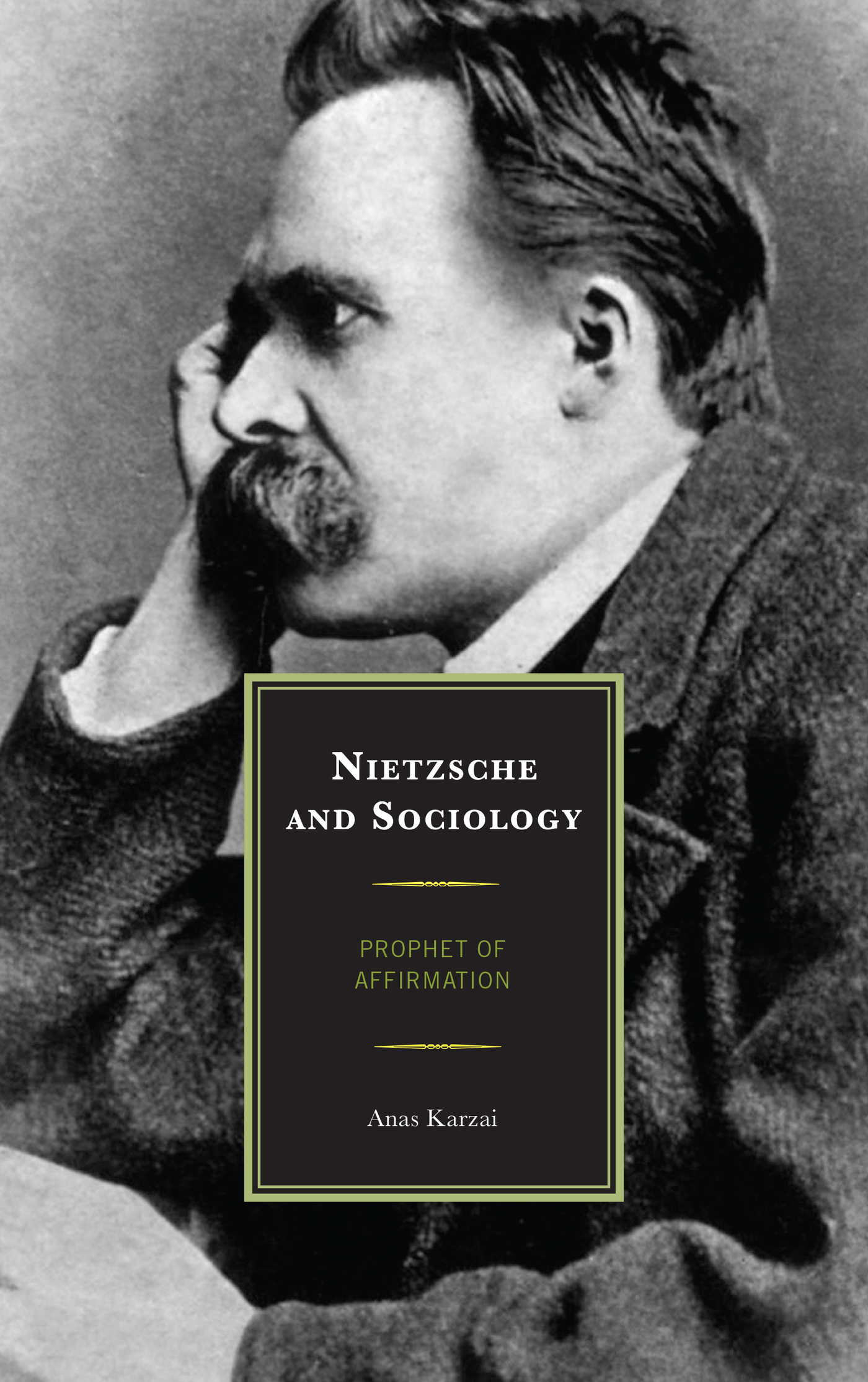Nietzsche and Sociology
Nietzsche and Sociology
Prophet of Affirmation
Anas Karzai
LEXINGTON BOOKS
Lanham Boulder New York London
Published by Lexington Books
An imprint of The Rowman & Littlefield Publishing Group, Inc.
4501 Forbes Boulevard, Suite 200, Lanham, Maryland 20706
www.rowman.com
6 Tinworth Street, London SE11 5AL
Copyright 2019 by The Rowman & Littlefield Publishing Group, Inc.
All rights reserved. No part of this book may be reproduced in any form or by any electronic or mechanical means, including information storage and retrieval systems, without written permission from the publisher, except by a reviewer who may quote passages in a review.
British Library Cataloguing in Publication Information Available
Library of Congress Cataloging-in-Publication Data
Names: Karzai, Anas, 1967- author.
Title: Nietzsche and sociology : prophet of affirmation / Anas Karzai.
Description: Lanham, MD : Lexington Books, 2019. | Includes bibliographical references and index.
Identifiers: LCCN 2019009403 (print) | LCCN 2019011393 (ebook) | ISBN 9781793603432 (Electronic) | ISBN 9780739150511 (cloth : alk. paper)
Subjects: LCSH: SociologyPhilosophy. | Nietzsche, Friedrich Wilhelm, 18441900.
Classification: LCC HM585 (ebook) | LCC HM585 .K39 2019 (print) | DDC 301.01dc23
LC record available at https://lccn.loc.gov/2019009403
 TM The paper used in this publication meets the minimum requirements of American National Standard for Information Sciences Permanence of Paper for Printed Library Materials, ANSI/NISO Z39.48-1992.
TM The paper used in this publication meets the minimum requirements of American National Standard for Information Sciences Permanence of Paper for Printed Library Materials, ANSI/NISO Z39.48-1992.
Printed in the United States of America
In loving memory of my mother, Magol Karzai.
One can measure the integrity of a modern scholar, and especially of a modern philosopher, by how he sees his own relationship to Nietzsche and Marx.... The world in which we ourselves exist intellectually is largely a world stamped by Marx and Nietzsche.
Max Weber
[Nietzsche] had a more penetrating knowledge of himself than any other man who ever lived or was ever likely to live.... In my youth he signified a nobility which I could not attain.
Sigmund Freud
Acknowledgments
It is impossible to write a book without the emotional and intellectual support of family, friends, and colleagues. First and foremost, I would like to thank Marianne Vardalos, my partner in both life and learning, for her never-ending patience. I am truly grateful for her unconditional support, for her trust that I could and would see this book through to completion, and for keeping the home fires burning while I did.
It is difficult to express my immense gratitude for the other Mary Anne in my life, expert editor Mary Anne Carswell, without whose skills and professionalism the completion of this book would not have been possible. Her unique mix of diligence and compassion during the extended writing process went far, far beyond the call of duty. I thank her for treating this project like her own, by advising me, encouraging me, and above all else, never abandoning me! This book is as much her achievement as it is my own.
I am grateful for the scholarly and personal support provided by my longtime friend, Claudio Colaguori. The recommendations that came from his close reading of the manuscript were invaluable. My equally trusted friend, Mike McEleny, read and discussed earlier versions of this project with me and challenged me to clarify my ideas in lively discussions. Tom Gerry, David Leadbeater, Reuben Roth, Linda St. Pierre, and Elaine Porter have also been by my side with encouragement and reassurance.
Thank you to Keith Ansell Pearson for reading the initial prospectus and making thoughtful and important suggestions to the theoretical content I was proposing. It was he who pointed out the necessity of addressing the Kantian-Hegelian influence in sociology if we are to understand Nietzsche in relation to the discipline. If this task is not fully achieved here, then the fault is solely mine.
I thank the Canadian Federation for the Humanities and Social Sciences for providing two anonymous reviewers to read the first draft of this book. I also thank the anonymous reviewers provided by Lexington Books. I would like to thank the Lexington Books team for their professionalism and patience in getting this project done. I thank Jana Hodges-Kluck, Courtney Morales, and Celeste Auman. I thank the Laurentian University community, my colleagues in the Department of Sociology, and the reference librarians for their assistance.
I thank my former and present teaching assistants who helped me out with my teaching responsibilities and/or the research for this book: Ethan Angie, Jacob Hodges, and Sarah West. I also would like to thank my colleague Moira Ferguson for taking on some of my teaching responsibilities while I was writing.
Although all my family was supportive of this project, I owe special thanks to my mother-in-law Doreen and sister-in-law Humera whose attentiveness and generosity had no limits. In times of crisis, they always offered a solution whether it was a peaceful refuge for writing, a delicious home-cooked meal, or loving company for our daughter, Ariana, and son, Aris. I dedicate this book not only to my children, but to everyone surrounding these free spirits with love, care, and nurturing. It truly takes a village.
Introduction
Open your eyes, you sociologists of the future! The individual has grown strong under opposite conditions; what you describe is the most extreme weakening and impoverishment of mankind; you even desire it and employ to that end the whole mendacious apparatus of the old ideal! You are so constituted that you actually regard your herd-animal needs as an ideal!
Nietzsche, TheWill to Power
Writing this book on Friedrich Nietzsches relevance for the present is both personal and professional for me. It was only during my undergraduate studies at York University in Toronto that Nietzsches On the Genealogy of Morals appeared on the course outline in a seminar on social thought. Although it was difficult to read, I began to read other texts by Nietzsche and found them filled with social and philosophical ideas, irony, metaphors, elation, interesting movements of thoughts, joy, and above all, the affirmation of life in a way that I did not find in the works of Weber, Durkheim, Marx, and other social thinkers I read. But there was also a sudden awakening of everything I had known to be noteworthy of consideration. I was immediately reminded that I had some serious adjustments to make in my own way of reading, thinking, and engaging with his writing style; more importantly, I had to go back to where I had started this journey.
For half of the twentieth century, Nietzsches critique of the sociopolitical values of the liberal-utilitarian democracies of the West and his style of writing led him to be intentionally ignored in the Anglo-American academic world. But when I read Nietzsche for the first time, the stable, comfortable theoretical foundation upon which I had relied for thinking and feeling was thoroughly shaken. I had to reread the ideas of the so-called founding fathers of sociologyComte, Marx, Weber, Durkheim, Simmel, and their respective predecessors and followers. At a professional level, my dissatisfaction with practitioners of academic disciplinarity and rigid compartmentalization of ideas, their linear thinking, and their habit of turning thinkers into competing theoretical camps and ismsinto who belonged, and who didnt, in a particular school of thought, and who must be considered an outsiderwere an impetus for me to write this book. This academic tribalism, as I would call it, never seems to disappear from the halls of academia.
Next page
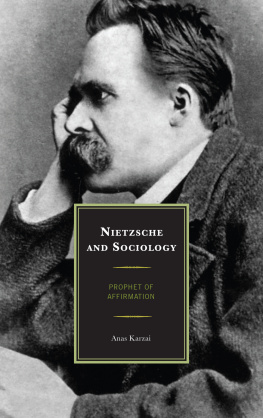

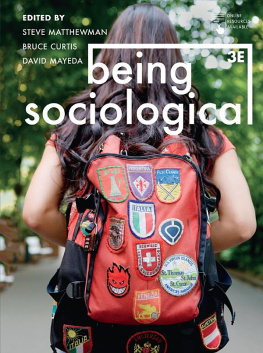
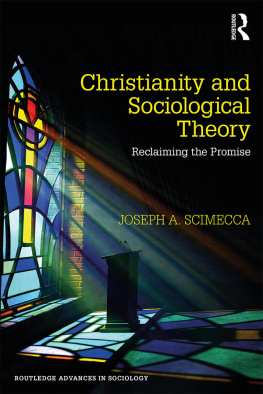

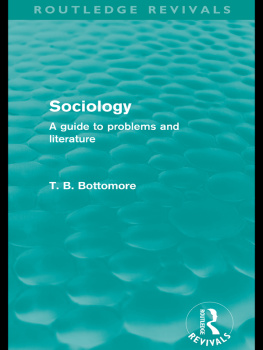
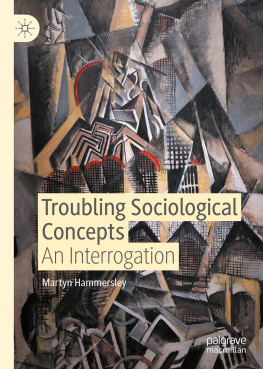
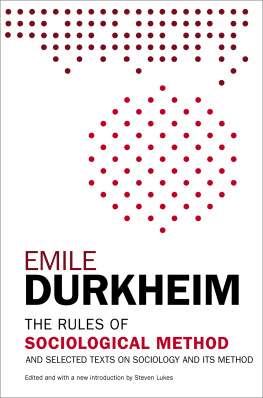
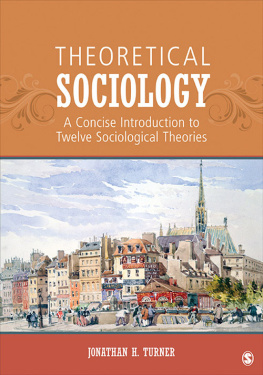
 TM The paper used in this publication meets the minimum requirements of American National Standard for Information Sciences Permanence of Paper for Printed Library Materials, ANSI/NISO Z39.48-1992.
TM The paper used in this publication meets the minimum requirements of American National Standard for Information Sciences Permanence of Paper for Printed Library Materials, ANSI/NISO Z39.48-1992.